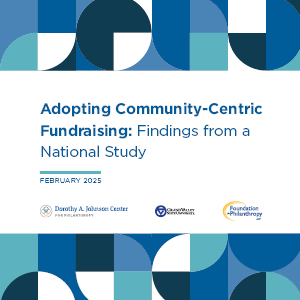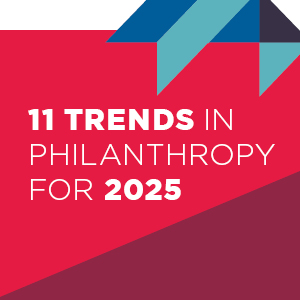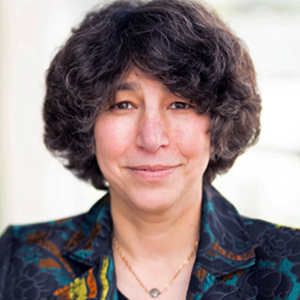A Year of Reflection, Learning, and Action
Fiscal year 2024 was a time of energizing and honest reflection for the Johnson Center — a year of learning and of action.


















Fiscal year 2024 was a time of energizing and honest reflection for the Johnson Center — a year of learning and of action.
Michigan’s task force improved data collection on racial disparities in COVID-19 to address systemic healthcare inequities.
Despite facing generational challenges, the U.S. South has seen relatively little institutional philanthropic investment. Major new investments and initiatives could spark a larger shift in attention and funding.
This article explores how place-based funders and new collaboratives are working at the local level to address the widespread issue housing availability and affordability.
In a time of declining donor engagement and donation size, new partnerships and paradigms between social media influencers, nonprofits, and communities may be advantageous for all.
The Johnson Center is pleased to welcome Elizabeth Dale, Ph.D., as the second holder of the Frey Foundation Chair for Family Philanthropy.
Launching a new nonprofit is complex and challenging work. But fiscal sponsorship is gaining ground as an increasingly popular alternative model — one that can lift a mission’s administrative burdens and accelerate the work.
Art is an effective way to engage youth and increase their motivation and passion for philanthropy. This post suggests several ways to embed art in youth philanthropy programs to strengthen young people’s drive to make positive change.
This special anniversary issue presents the most-read articles from the journal’s 15-year history, each with author commentary in newly written prologues, as well as a book review and new article for 2024.
As nonprofits and philanthropy consider how to engage Gen Z (those born between the mid-1990s and early 2010s) — and what to expect from them, a thorough understanding of their economic reality will be critical.